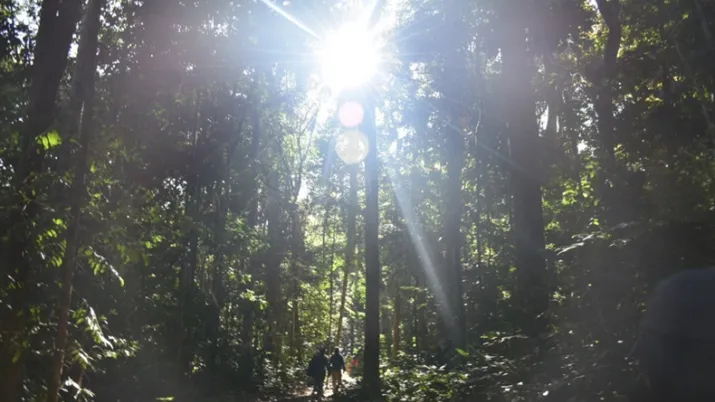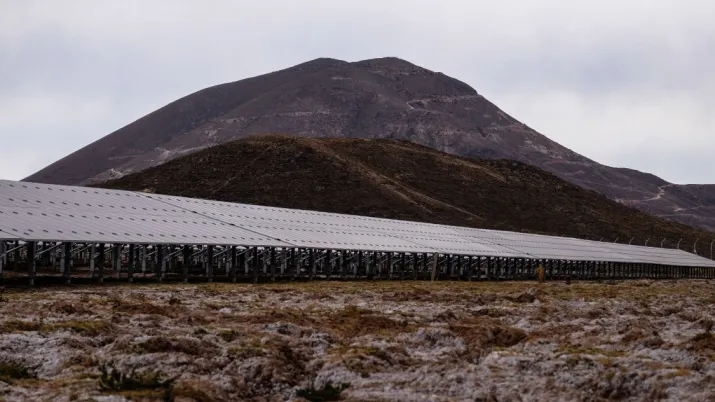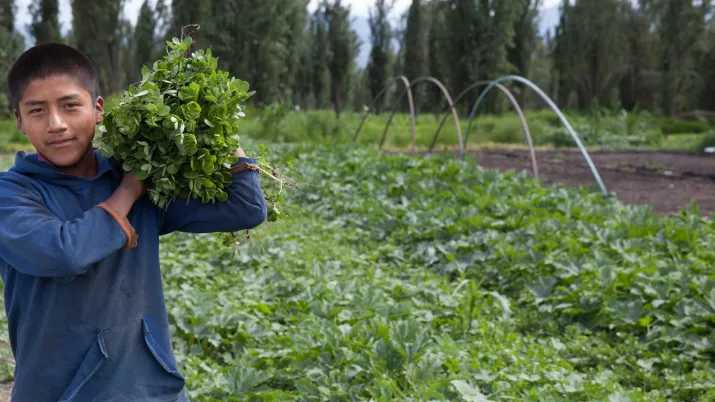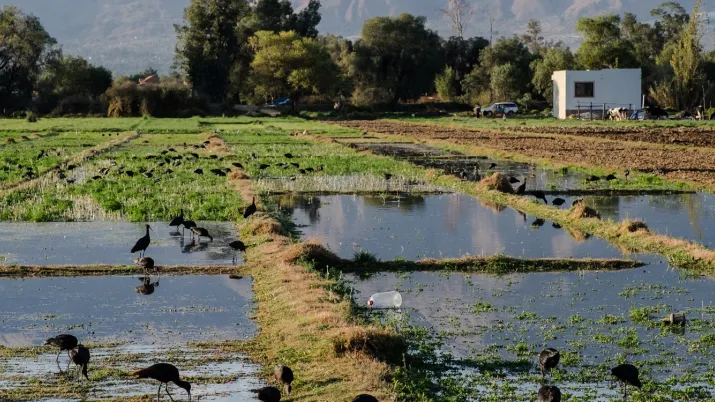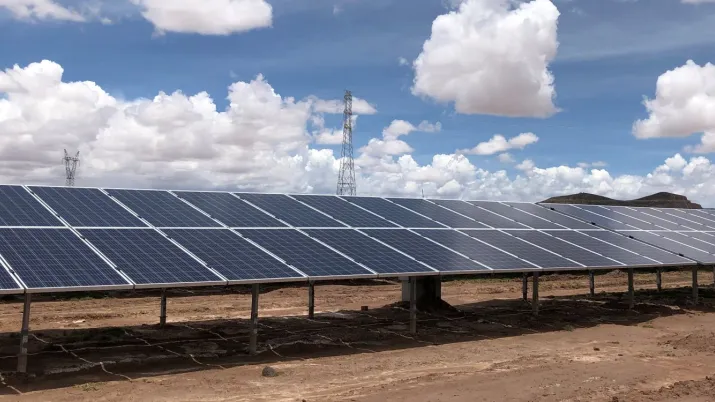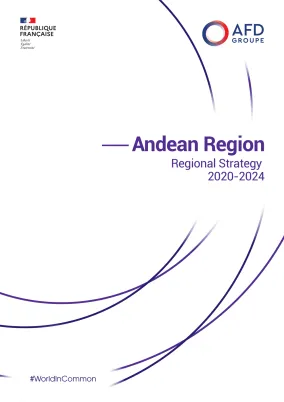Share the page
Bolivia
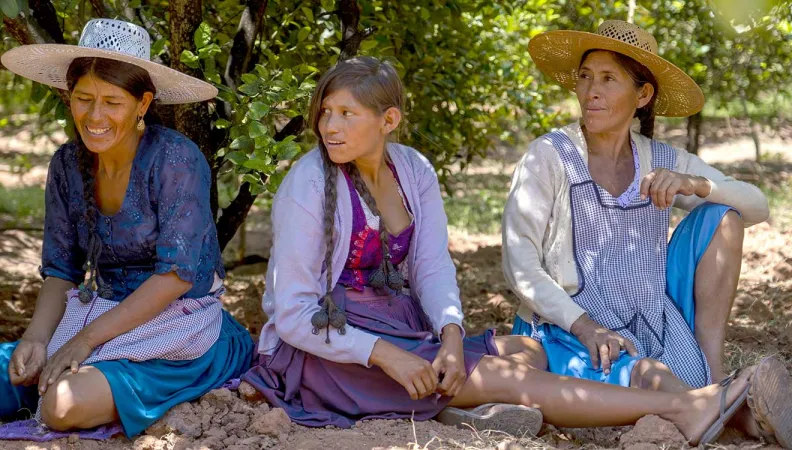
Since 2015, AFD Group has supported Bolivia’s inclusive and ecological transition through projects focused on the energy transition, access to basic water and sanitation services, environmental protection, and sustainable economic and social recovery.
Context
Thanks to its vast hydrocarbon and mineral resources, Bolivia’s productive structure has historically relied on the extraction of raw materials. Favorable commodity prices in the 2000s, combined with proactive social policies targeting the most vulnerable populations, enabled the country to make significant social progress for its 11 million inhabitants. For example, the poverty rate dropped from 70% in 2000 to 31% in 2021, according to ECLAC.
At the same time, Bolivia ranks among the countries most affected by climate-related events: it is among the ten most vulnerable, according to the Global Climate Risk Index. Between 2016 and 2018, several cities experienced unprecedented droughts, and in some regions, recent forest fires have been devastating.
Alongside climate challenges, Bolivia faces other pressing issues. Many residents, particularly in rural areas, are affected by poor access to quality drinking water and sanitation services.
Another key concern is the urgent need to diversify and secure national energy production.
In response to these challenges, AFD Group’s activities are aligned with Bolivia’s economic, social, and environmental development strategy. Its aim is to support an integrated approach to climate and sustainable development challenges through three strategic priorities through 2025:
- Supporting low-carbon and sustainable economic recovery
- Promoting inclusive and resilient cities and territories with quality local basic services
- Strengthening sustainable environmental management
The AFD Bolivia office reports to the Andes Regional Directorate based in Bogotá.
Our approach
AFD and Bolivia: working together for sustainable and inclusive development
Bolivia’s National Interconnected System (SIN) covers 94% of national electricity demand, with 97% coverage in urban areas and 77% in rural areas. Renewable energy sources, including biomass, solar, and wind, currently account for only 1% of national electricity production.
To support the Bolivian government’s efforts to achieve universal access to electricity by 2025 and move toward a power supply that is secure, sustainable, and affordable for the population, AFD is assisting Bolivia through:
- a loan to finance the construction of one of the country’s first photovoltaic solar plants in the department of Oruro
- a loan for the construction of two wind farms in the departments of Santa Cruz and Tarija
- a policy-based loan to support the country’s public energy transition strategy
- a technical cooperation program funded through European Union delegated funds and non-reimbursable grants mobilized by AFD. This support includes strengthening national capacities in the energy sector, supporting environmental and social regulations, integrating variable renewable energy into the SIN (in collaboration with the Comité Nacional de Despacho de Carga, CNDC, and its French counterpart, RTEi), implementing an energy information system, promoting e-mobility, and advancing gender equality in the sector
In Bolivia, only 57% of the population has access to sanitation services, and the performance of drinking water supply and sanitation systems remains limited. Water quality is a serious concern for both the population and the environment. AFD is supporting the Bolivian government through:
- a loan to finance the construction of a 27.5 km drinking water conveyance system, which will carry water from the Misicuni dam to the Cochabamba metropolitan area
- a loan for the construction of wastewater treatment plants and associated sanitation networks in Cochabamba, aimed at improving the sanitation of the Rocha River
- a policy-based loan in the water sector to support long-term sector strengthening, including institutional support for several EPSA (Empresas Prestadoras de Servicios de Agua y/o Alcantarillado) in the country
- a technical cooperation program to support the Ministry of Environment and Water and two pilot watersheds in integrated water resource management, in partnership with the International Office for Water (OiEau), and to strengthen the Empresa Misicuni
- knowledge production through a research program on water as a common good in Bolivia
In a fragile global context, especially in the aftermath of the COVID-19 pandemic, Bolivia faces significant challenges in consolidating its economy. In response, the country has adopted economic recovery measures focused on strengthening its productive base.
AFD Group is supporting this effort through:
- an emergency policy-based loan, co-financed with other donors during the pandemic, to help fund social transfers for the country’s most vulnerable populations
- a sovereign loan to the Bolivian government to support sustainable and climate-resilient recovery through three main areas:
- macroeconomic stability: for example, AFD’s GEMMES model is being adapted to help integrate climate into public policy planning, through AFD’s 2050 Facility
- implementation of Bolivia’s commitments under its 2030 Nationally Determined Contributions (NDCs): for instance, support is being provided to develop the national mitigation strategy and strengthen integrated forest management (funded through the Euroclima+ program)
- just transition: by supporting the development of a green finance strategy within the Banco de Desarrollo Productivo (BDP)
- two credit operations by Proparco to support financing for small and medium-sized enterprises (SMEs) and microfinance, in partnership with Banco Ganadero and Cooperativa San Martin de Porres (COSMART)
Bolivia is also a beneficiary of several regional projects financed by AFD Group:
- AFD has funded partnerships between Bolivian and French civil society organizations on themes including rural and agricultural development, human rights, health, and women’s economic empowerment
- Urban development is being addressed from multiple angles, including: a sustainable urban mobility project featuring the construction of a pilot bicycle lane in the city of La Paz (funded through the Euroclima+ program); a study on different financing mechanisms for local governments (Ciudad Confianza); and climate vulnerability assessments in the cities of Tarija and La Paz, carried out by IRD and other institutions
- Expertise France, for its part, is implementing several regional projects on forests and biodiversity in the Amazon, Chiquitania, and Chaco regions (with Euroclima+ funding), as well as initiatives on social protection and public policy in response to population aging
- Bolivia is also participating in the regional project supporting the implementation of the Escazú Agreement, alongside Ecuador, Mexico, and Costa Rica
In the field
Below, find the country's projects, news, publications, and contact details in one click.
Projects
News & Press Releases
AFD uses Strong Sustainability to Support Partners’ Transitions to Greener Development
Published on December 20, 2022
Boosting Bolivia’s Energy Supply with one of the World’s Highest Solar Power Plants
Published on February 15, 2021
Key figures
-
710 million euros in loans to the Bolivian government between 2016-2023
-
22 projects
-
3 local financial institutions supported

